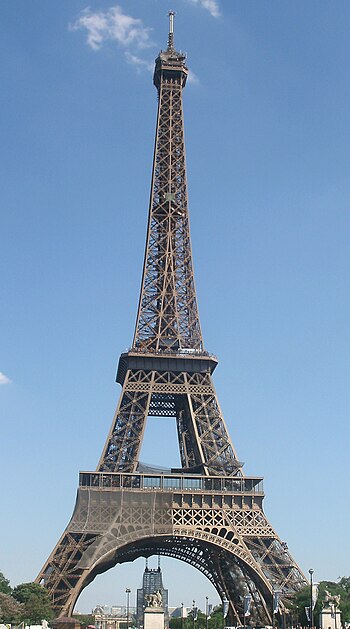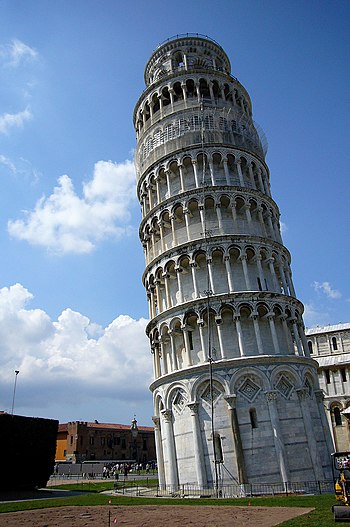Difference between revisions of "Lesson:Essentials/60"
| Line 20: | Line 20: | ||
*Which pair of glasses do you want? | *Which pair of glasses do you want? | ||
**Qual óculos você quer? | **Qual óculos você quer? | ||
| − | *This one ( | + | *This one (-> glass). |
| − | **Quero este ( | + | **Quero este (-> óculos). |
*In which drugstore did you buy these remedies? | *In which drugstore did you buy these remedies? | ||
**Em qual farmácia você comprou estes remédios? | **Em qual farmácia você comprou estes remédios? | ||
| Line 34: | Line 34: | ||
}} | }} | ||
| − | 2. ONES (plural) | + | ===2. ONES (plural)=== |
{{Example| | {{Example| | ||
| Line 60: | Line 60: | ||
}} | }} | ||
| − | 4. WHICH (ONE), THIS (ONE), ... | + | ===4. WHICH (ONE), THIS (ONE), ...=== |
Após which, this, that, another, either, neither e superlativos a palavra substitutiva (one ou ones) pode ser omitida. Mas lembre-se, ela deve estar posicionada imediatamente após estas expressões para que possa ocorrer a omissão. | Após which, this, that, another, either, neither e superlativos a palavra substitutiva (one ou ones) pode ser omitida. Mas lembre-se, ela deve estar posicionada imediatamente após estas expressões para que possa ocorrer a omissão. | ||
Revision as of 13:24, 29 September 2014
Grammar
Elementos para evitar a repetição - One/Ones
Estes elementos são usados para evitar a repetição de um substantivo já mencionado. Geralmente são precedidos por um determinante: a, an, another, the, this, that. Veja os exemplos abaixo:
- These chocolates are delicious. Would you like a chocolate?
- Estes chocolates são deliciosos. Você gostaraia de um chocolate?
Usando os elementos para evitar a repetição, a frase acima é escrita da seguinte maneira:
These chocolates are delicious. Would you like one?
1. ONE (singular)
- Which pair of glasses do you want?
- Qual óculos você quer?
- This one (-> glass).
- Quero este (-> óculos).
- In which drugstore did you buy these remedies?
- Em qual farmácia você comprou estes remédios?
- The one in front of my house.
- Naquela (farmácia) que se localiza em frente à minha casa.
- I found this book. Is the one you lost?
- Encontrei este livro. É o (livro) que você perdeu?
- I didn't like the black boot, I prefered the brown one.
- Não gostei da bota preta, preferi a (bota) marrom.
- This plate is dirty. Can I have a clean one?
- Este prato está sujo. Posso pegar um (prato) limpo?
2. ONES (plural)
- Which flowers do you want: the red ones or the white ones?
- Quais flores você quer: as (flores) vermelhas ou as (flores) brancas?
- Which shoes are yours?
- The blue ones.
- Quais são os seus sapatos?
- Os (sapatos) azuis.
- Don't buy these strawberries. Buy the other ones.
- Não compre estes morangos. Compre aqueles outros.
- These trains go to London. Those ones go to Liverpool.
- Estes trens vão para Londres. Aqueles (trens) vão para Liverpool.
3. A ... ONE
O artigo indefinido a é usado quando a palavra substitutiva (one ou ones) for acompanhada de adjetivo. Caso a palavra substitutiva não esteja acompanhada de adjetivo, o artigo indefinido a não deve ser usado.
- She wants a dog. She would like a small one with brown hair.
- She wants a dog. She would like one with brown hair. (NOT ... a one with a brown hair.)
- Ela quer um cachorro. Gostaria de um (cachorro) pequeno com pêlo marrom.
- Ela quer um cachorro. Gostaria de um (cachorro) com pêlo marrom.
4. WHICH (ONE), THIS (ONE), ...
Após which, this, that, another, either, neither e superlativos a palavra substitutiva (one ou ones) pode ser omitida. Mas lembre-se, ela deve estar posicionada imediatamente após estas expressões para que possa ocorrer a omissão.
- Which (one) would you prefer?
- Qual (deles) você prefere?
- We should see another (one).
- Deveríamos ver outro (destes/deles).
- This (one) looks great.
- Este (aqui) parece ótimo.
- Either (one) will talk to me.
- Um ou outro (deles) vai falar comigo.
- My daughter is the slimmest (one).
- Minha filha é a mais magra (delas).
1. Complete the sentences using one or ones:
- This is my new car, the red __________ over there.
- On the desk there are two red pens, and three blue __________.
- Most of the questions are difficult, so find the easier __________ and do those first.
- Are these your shoes? No, the black __________ are mine.
- I hoped I could borrow a sweater from Tim, but this __________ fits me quite well.
- Frank is going to organize another party, sure it will be even bigger than the first __________.
- This magazine doesn't look very interesting, there is another __________ on the desk.
- The most poisonous spiders live in Australia, but the biggest __________ live in Asia.
- Ann's wedding party was a long and happy __________.
2. Answer the questions using one, ones if necessary:
- What flavour ice-cream is that?
Rasberry __________. - What kind of wine do you prefer?
Red __________. - Which one is your son?
The good-looking __________. - Which is your coat?
The green __________. - How much are the sandwiches?
The tuna __________ are £2.50 and the others are £2.00. - How is the weather where you are?
It's terrible __________. - Which is your car?
The red __________ over there. - Who is Simon?
The __________ who is married to Lindsey. - Do you like this dress?
No, I preferred the other __________. - Somebody has to work late again and I'm the lucky __________.
- I like eating cookies. Especially the chocolate chip __________.
Conversation
- Do you know any countries in Europe? If so, which one(s)?
- If you had the chance to go to Europe next month, where would you like to visit? Why?
- What are some of traditions and cultures about the European peoples?
- What is the most northern country in Europe?
- Which country(ies) in Europe have the best cuisine?
- What is the most widely spoken as a second language in Europe?
- What is the European Union?
- What are some famous landmarks in Europe?
- What are some differences between North America and Europe?
- What comes to your mind the word 'Europe'?
Vocabulary
Europe
- Iceland, Icelander, Icelandic
- Ireland, Irish
- The United Knigdom (UK), British, Briton, Brit (informal)
- Scotland, Scotish
- England, English
- Wales, Welsh
- Portugal, Portuguese
- Spain, Spanish
- France, French, Frenchman
- Belgium, Belgian
- Amsterdam
- Italy, Italian
- Switzerland, Swiss
- Germany, German
- Austria, Austrian
- Denmark, Danish
- Czech Republic, Czech
- Slovenia, Slovenian
- Croatia, Croatian
- Bosnia and Herzegovina, Bosnian, Herzegovinian
- Montenegro, Montenegrin
- Macedonia, Macedonian
- Greece. Greek
- Turkey, Turkish
- Bulgaria, Bulgarian
- Romania, Romanian
- Hungary, Hungarian
- Slovakia, Slovakian
- Poland, Polish
- Moldova, Moldvan
- Ukraine, Ukrainian
- Poland, Polish
- Belarus. Belarusian
- Baltic countries, Baltic
- Lithuania. Lithuanian
- Latvia, Latvian
- Estonia, Estonian
- Sweden, Swede, Swedish
- Norway, Norwegian
- Scandinavia, Scandinavian
- Nordic countries, Nordic
- Russia, Russian
http://www.languageguide.org/english/vocabulary/europe/
Review
1. Follow the example below':
- I like this book. (I - prefer - that)
- I like this book but I prefer that one.
- He likes this food. (They - prefer - those)
- They likes this sport. (She - prefer -these)
- She wants to read that magazine. (We - want - those)
- They must write this article. (You - read - these)
- He has to buy the white pickup truck. (Jacob - sell - that)
- Jenny wants the tuna sandwich for lunch. (Cindy - want - this)
- You have to bring only this document. (Mark and Anna - have - these)
- He likes the mountain bike. (I - prefer - that)
- I saw this computer on the internet. (She - see - that)
2. Rewrite the sentences following the model.
- She'd like to go to Scotland next year. / to visit herfriends / with her family
- She'd like to go to Scotland next year to visit herfriends.
- She'd like to go to Scotland with her family next year.
- I didn't have enoug time to visit the Greek islands on my trip. / money / to go to the show
- If you visit Amsterdan you should see the tulip gardens. / France - Eiffel tower / Switzerland - the Alps
- He's planning a tour himself / through Europe / They
- I don't think Norway was as cold as Sweden / fun / beautiful
- It's 9 o´clock and she still has to buy the tickets to Turkey. / 7 / find
- She used to live in Croatia when she was a University student. / doctor / My father
- The group won't be able to visit all the ladnmarks in Germany / because of the time / Denmark
3. Look at the picture below and write sentences using them as a reference:
4. Sentence listening
Answers
- Which countries are you going to visit in Europe?
- She loves visiting Italy during summer.
- What language do they speak in Poland?
- If I were in Greece now I would be on the beach.
- Their family came from Portugal last century.
5. Read the text and answer the questions below:
Interesting Facts about Europe
- An interesting fact about the European continent is that it starts from North America to end at North America again, due to the presence of countries like Iceland and Russia in the continent.
- For the past 20 years, the population of Europe has been static, with the birth and death rates being constant.
- Vatican City State has been declared as a world heritage site by UNESCO.
- Like Japan is termed as the 'Land of the Rising Sun', Norway in Europe is called the 'Land of the Midnight Sun'.
- In the literal sense of the words, there is no desert in Europe.
- There are three time zones in Europe, namely Eastern European Timezone, Western European Timezone and Central European Timezone.
- One of the facts on Europe is that , there exists a common currency in 12 nations of the European continent called Euro, which was introduced in 2002.
- The Statue of Liberty was designed by a French, who went with the name Frédéric Bartholdi and it was another French, Alexandre Gustave Eiffel, who built the statue in France before it was shipped to America.
- The only metropolitan area, which is a part of two continents is Istanbul, as it is located on the Bosphorus Strait, which is a part of Europe as well as Asia. Therefore, it is often said, "if you want to have lunch in Europe and dinner in Asia, then you have to be in Istanbul".
- An interesting fact about Europe is that there are three countries in Europe, whose names start with the alphabet 'I', namely Iceland, Italy and Ireland.
- You will be astonished to know, that Germany has as many as 9 neighbors, namely Switzerland, Netherlands, Poland, Denmark, France, Luxembourg, Austria, Belgium and Czech Republic.
- Where does the European continent start? And where does it finish?
- How is Norway also called?
- How many time zones are there in Europe?
- Which is the most common currency in Europe?
- Which country has the greatest variety of neighbors?
- Do you know any other curiosity about Europe? What?
<headertabs />
{{#widget:DISQUS
|id=jointhegrove
|uniqid=Essentials/60
|url=http://thegrove.com.br/metodo/index.php/Essentials/60
}}





